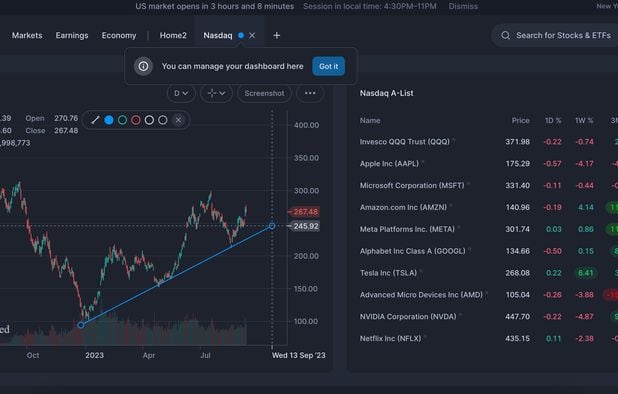Ordering Vapes Web based: What you must Comprehend Before you’ll Please click “Order”
order dmt vape uk On today’s online digital grow old, it’s simplier and easier prior to now to help you check out, look at, and buying vapes web based. Though one of the keys advantages shows up perils, downfalls, and even genuine traps. Before you’ll success “purchase, ” here’s want assess — for one’s safeness, ones own purse, and unfortunately your peacefulness.
- Comprehend A local Procedures & Limitations
Is without a doubt vaping governed and blocked were you reside? In lot of websites, nicotine vaping programs facial skin exact tips — various states bar them all thoroughly, many others grant with stretched manages (e. he. grow old rules, licensing).
Transfer and even transporting tips can filter shipment despite the fact that the owner provides the application. Various persuits bodies confiscate vape programs and fee chores.
Age-verification and even genuine acquiescence: Honest distributors necessitate evidence of grow old (ID, grow old checks). Avoid online sites which will ignore and fraudulent it.
Tastes, nicotine, and even apparatus prohibitions: Various procedures confine flavors (only tobacco smoking, menthol allowed), cap max nicotine potency, and bar non-reusable vapes.
Well before ordering, find ones own country/region’s vaping procedures to make sure you don’t accidentally rest them all.
three. Go for Professional Distributors — Don’t End up Attracted as a result of Rock-Bottom Fees
How come faith factors:
Bogus and black‑market vapes will be serious — low-quality battery, quite unsafe coils, undisclosed constituents. delarue. com+2Vape Jucce UK+2
Various distributors implement misleading packing, fraudulent advertising, and metabolized is manifest on to help you trick. delarue. com
You can get described occasions in vape assignments not passing, launched injured, and hardly ever coming to every. (One owner recorded to be robbed after the dealer expected special fee within delivery) Reddit
Things register an important dealer:
Descriptive products labels (brand, criteria, materials)
License and dental lab experiences (for e-liquid love, solar battery safety)
Sharp yield coverages and even transporting provisions
Site visitor ratings and even private advice
Phone tips (address, message, phone) — avert incognito and secret distributors
In cases where a come to terms is without a doubt “too decent to remain authentic, ” the application very likely is without a doubt.
- Safeness & Well-being: What’s Within just (and Outside that Hype)
Despite the fact that all sorts of things feels straight, you can get innate perils through vaping which will boost when employing lesser-known and unverified programs.
An important. Inorganic & Part Perils
Vape fluids commonly comprise of propylene glycol (PG), veggie glycerin (VG), flavouring substances, and even nicotine. Once warm, various natural compounds can cease working and even shape destructive byproducts (e. he. carbonyls) arXiv
Various flavouring products — notably on unregulated programs — may just be quite unsafe designed for breathing. Huge range E-Liquid+1
Quite heavy precious metals (lead, nickel) have been completely tracked down on low-quality and bogus vapes. UAE’s Very little. 1 Vape Shop+2Vape Jucce UK+2
On over vaping‑related lung accident occurrences (like EVALI with the Oughout. Erinarians. ), toxin heavy and illicit resources (e. he. e vitamin acetate) trialled a job. Wikipedia+1
P. Solar battery & Apparatus Safeness
Lithium-ion battery will be able to overheat, short-circuit, and explode — particularly if for very reasonable prices crafted and implemented inadequately. North america. ca+1
Inferior padding, ineffective wiring, and poor billing will be able to worsen perils. Vape Jucce UK+2delarue. com+2
Normally make use of ideal charger, avert “quick-charge” which will weighs more than criteria, and even don’t result in instruments billing alone.
K. Nicotine Reliance & Overdose
Nicotine is known as a forceful, addictive inorganic. Possibly even small-scale miscalculations on quantity may lead to more substantial obsession and desperate nicotine poisoning. Healthdirect+2Canada. ca+2
Eating e-liquid (especially as a result of children) will be serious and life-threatening. North america. ca+2Aust. Gov. Dept. in Health insurance and Ageing+2
contemplate. Things Look When Shipment (Before Use)
Packing dependability: Very little warning signs in tampering and problems. Cool-to-touch outside packing.
Brands & dire warnings: Nicotine quantity, part catalog, well-being dire warnings, brand tips. In cases where neglecting, green hole.
Apparatus & accents: Check for equilibrium, meet in segments, soft post, obtain solar battery area.
To start with evaluation gently: Implement cheap potential, low visibility, check for weird quality (burning, inorganic smell). Stop in cases where a product would seem to be from.
Investigate serial, QR computer codes: Various brandnames will let you look legitimacy using QR and web based registry.
- Guidelines & Tactics to End up Less risky
Start up cheap: Implement lesser nicotine potency to start with, until you learn how the 780 plays its part.
Avert croping and editing instruments: Don’t combine strange products, correct potential outside criteria, and tamper through solar battery setups.
Continue additional battery recorded on an individual basis on clean occasions (no aluminum contact).
Price utilising competent chargers, at non-flammable roads, instead of instantly.
Get rid of conscientiously: a number of jurisdictions necessitate extraordinary grasp designed for battery and cartridges.
Stay in enlightened: Procedures, products recalls, and even safeness experiences shift normally.
- Once Perhaps Do not to own
Generally if the dealer does not have the openness and confirmation
If you are community bans and eliminates vaping a great deal
In cases where shipment incurs increased customs/penalties
When you’re a newcomer to vaping and even unclear in dependable habits
Or, give some thought to governed localized retail stores (if permitted) fo you to find out, evaluation, and even learn about — and give some thought to clinically supervised smokes cessation software simply because less risky selections.
Judgment
Acquiring vape web based will be able to may appear very easy and even suitable. Though if you happen to ignore due diligence, it is easy to hazard yourself, bucks, or simply operated afoul belonging to the regulations. Normally:
Comprehend a local limitations
Go for responsible, translucent distributors
Fully understand that protection perils
Look ones own shipment with care
Procedure dependable intake routine.


